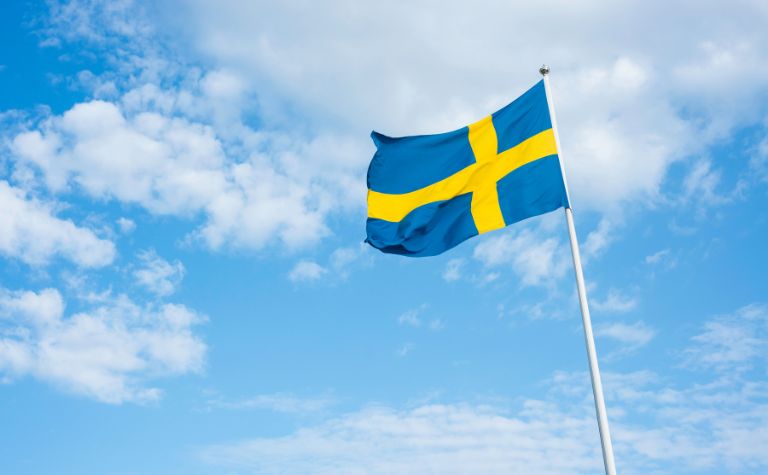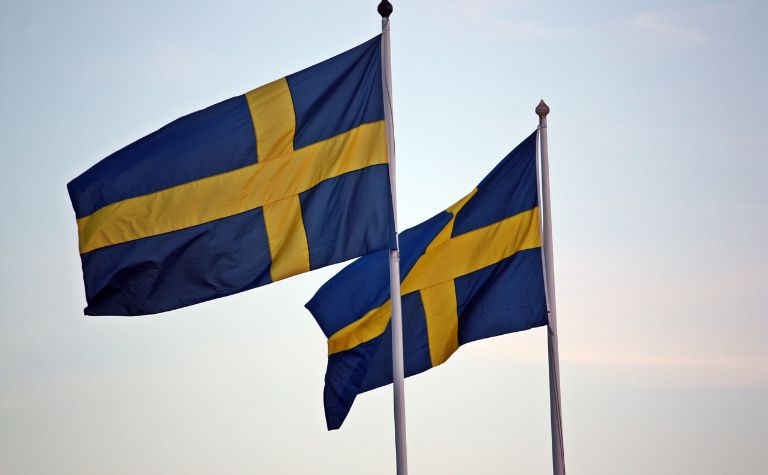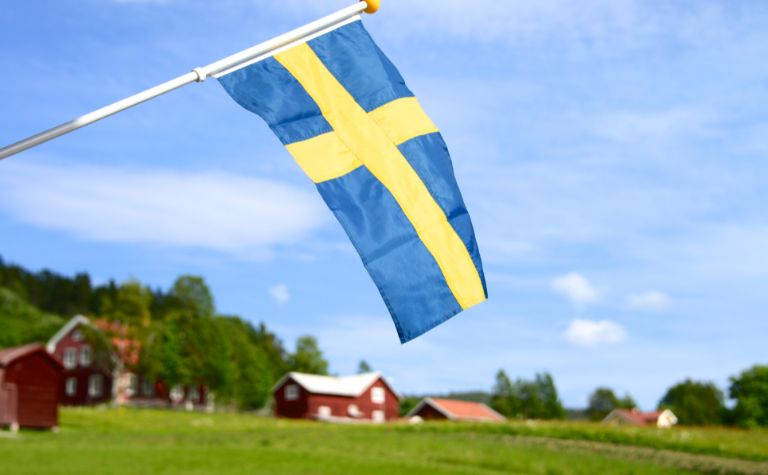People who play the video game Minecraft might be familiar with the name Ulla Britta from the PewDiePie YouTube channel, as it was the name of a tamable calico cat.
But historically, the term “Ulla Britta” is a name that originates from Sweden.
Ulla Britta is a Swedish female name. “Ulla” is a word that’s short for Ulrika in Scandinavian countries, while “Britta” is a shortened version of Birgitta, a Celtic name.
The rest of this article explores everything there is to know about the term Ulla Britta, how it’s used in Sweden, and what Swedish names and phrases are popular in English.

Why Do People Say Ulla Britta?
When translated, Ulla Britta is two names in one. Ulla means Ulrika and Britta means Birgitta.
These names are popular in Sweden when used individually, but it’s also common for people to have multiple given names in the country.
So, one could have Ulla Britta as two of their given names.
Historically, the name “Ulla” was popular in Sweden in the 1930s and 1940s.
Earlier than that, in the 1700s, Ulla was a common name for artists and members of royalty, such as Ulla von Höpke who was a noble and leading socialite.
This name is not just used in Sweden, however, as it’s a common name for girls in other countries, including:
- Germany
- Finland
- Austria
- Denmark
Britta is a female name variant of Birgitta, a Swedish word with its roots in the Irish Gaelic name Brighid.
In English, this name translates as Bridget. Britta became a popular name for girls in Scandinavia and Germany because it was inspired by St. Bridget of Sweden, who was a saint and mystic in the 1300s. [1]
But why is the phrase so popular in the United States?
People often say Ulla Britta because it’s fun to say. It became a well-known nonsense phrase in 2019 due to a YouTube video series for Minecraft that was created by Swedish YouTuber PewDiePie.
In this series, Ulla Britta is the name of a female calico cat that has white, black, and orange fur.

What Swedish Names Are Well-Known in English?
Many Swedish names are well-known in English, including:
- Kerstin
- Annika
- Ella
- Noah
- Lars
- Mikael
In fact, some of these are so well-known that their Swedish origin isn’t always realized, such as Kerstin and Annika. The following outlines the meanings behind each of these popular Swedish names:
- Kerstin: This is a female Swedish and German form of the name, Christina. In English, this name means “follower of Christ.”
- Annika: This is a female, diminutive Swedish name of Anna and means “graceful.”
- Ella. This name has German origins, but it’s common in Sweden where it’s a diminutive of Eleonor or Elisabeth. In the U.S., it was named the 15th most popular name in 2020. [2]
- Noah: This is a popular name for boys. It means various things, such as “rest” and “peaceful,” but it also has Biblical significance.
- Lars: Although it might not be as popular in the U.S. as the previous names on this list, Lars is a name of Scandinavian origin that’s common in countries such as Sweden, Belgium, and Switzerland. It means “crowned with laurel.”
- Mikael: This is another male name that has its roots in Scandinavia. [3] It’s a diminutive of a popular boy’s name, Michael, a Hebrew name. This name means “who resembles God.”

What Swedish Phrases Are Well-Known in English?
Although one might not be familiar with Swedish phrases, some are similar to English phrases people regularly use, even though they sound completely different.
The similarity is because both Swedish and English hail from the Germanic language.
Here are some Swedish phrases similar to those commonly used in English:
- Att ana ugglor i mossen.
- Inte skottat ända fram.
- Borta bra, men hemma bäst.
- Ingen ko på isen.
- Gå som katten kring het gröt.
These phrases have the following meanings:
- Att ana ugglor i mossen. This phrase is a popular one. It’s translated to mean “To suspect there are owls in the bog,” but its English equivalent is “to smell a rat.”
- Inte skottat ända fram. The literal translation of this is “not shot all the way forward,” which sounds amusing. Telling someone they’re not the sharpest tool in the shed is the English equivalent of this phrase.
- Borta bra, men hemma bäst. This phrase means “Home sweet home,” although it sounds a bit more colorful in Swedish as its literal translation is, “Away is good, but home is best.”
- Ingen ko på isen. This phrase is a funny Swedish saying that, when translated, means “There is no cow on the ice.” It’s a much more colorful way of telling someone, “Don’t worry.”
- Gå som katten kring het gröt. In English, people usually say, “Don’t beat around the bush” to prevent wasting time. But this Swedish phrase, which essentially means the same thing, can be translated as, “To walk like a cat around hot porridge.” [4]
Besides phrases and sayings, there are also some words in the English language that have their origins in Swedish. These include:
- Fartleks. This word is a term used for exercise training used by long-distance runners. It originates from the Swedish words “fart,” which means speed, and “lek,” which means play.
- Moped. This word is a mixture of the Swedish words motor och pedaler, which mean “motor” and “pedals.” [5] The word “moped” was coined in 1952 by Swedish journalist Harald Nielsen.
- Tungsten. This English word combines two Swedish words: “heavy” and “stone.” Interestingly, this word has strong Swedish roots because of an Irish chemist Peter Woulfe who studied a mineral from Sweden in 1779 and decided it contained a new metal, a milestone in the discovery of tungsten. [6]
- Smorgasbord. This word, which is spelled smörgåsbord in Swedish, refers to a buffet containing various foods. It hails from country districts of Sweden where guests would bring food to large social gatherings. [7]
- Gauntlet. This word has roots in Old French when used in the phrase, “To run the gauntlet.” It’s also a variation of an earlier English word, “gantlope,” which originated from a Swedish word, “gatlop.” [8]
- Celsius. This international measure of temperature was named after Swedish physicist Anders Jonas Ångström. He lived from 1814-1874. Celsius is used in most countries of the world because of the adoption of the metric system.
Conclusion
The Swedish term Ulla Britta is a female name that’s made up of two names, both of which have been popular historically.
